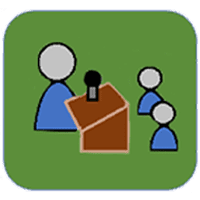Events

Seeds of Success: Fort Belknap Indian community BLM-SER restoration program
View webinar recording. The Fort Belknap Indian Community (FBIC) Native Seed & Grassland Restoration Program was designed to meet DOI, BLM, and Plant Conservation and Restoration Program Strategic Goals, via…

The effects of prescribed fire on wildfire regimes and impacts
Webinar recording. Prescribed fire can result in significant benefits to ecosystems and society. Examples include improved wildlife habitat, enhanced biodiversity, reduced threat of destructive wildfire, and enhanced ecosystem resilience. Prescribed…

Ecological drought: An introduction
Webinar recording. Introducing ecological drought as a scientific concept distinct from other definitions of drought, this webinar explores recent research on the topic, including transformational drought impacts and ecological tipping…

PhenoMap: Providing weekly vegetation development monitoring for effective management
Webinar recording. Satellite data can provide weekly updates of phenology (NDVI, a measure of “greenness”) at a resolution of 15 acres. The PhenoMap web map was created to place these…

Using information from global climate models to inform policymaking
Webinar recording. Description: Climate change is a risk management challenge for society because of the uncertain consequences for natural and human systems across decades to centuries. Climate-related science activities within the USGS emphasize research on adaptation to climate change. This research helps inform adaptive management processes and planning activities within other DOI bureaus and by…

Bringing fire and postfire response into alignment
Webinar recording. This webinar brings together a panel of postfire response experts to reflect on their experiences in addressing community needs during recent large fires. The discussion will highlight important differences in fire and postfire response on federal and non-federal lands, and a consideration of existing tools and policies and how they can be strengthened.…

Society for Range Management- 2020 Virtual Annual Meeting
Conference website. The Annual SRM meeting will be virtual. The meeting theme is “Rangelands – New Frontiers” and we hope to highlight many new ideas and endeavors occurring on rangelands across the globe. Call for sessions is now open. Imagine the great opportunities this digital alternative will offer to gather people from everywhere who love…

Great Basin-Focused Events from #SRM2021
We are hosting several workshops, symposia as part of the 2021 Society for Range Management annual meeting. **You do not need to be registered for the SRM meeting to attend. Strategic Targeted Grazing to Reduce Fine Fuels (Feb 16, 1:30-4:00 PST/2:30-5:00 MST) The Strategic Grazing symposium was held in conjunction with the Society for Range…

Strategic targeted grazing to reduce fire fuels
Symposium recording The Strategic Grazing symposium was held in conjunction with the Society for Range Management Virtual Meeting. It provides updates on the Idaho and Nevada strategic grazing demonstration areas. **You do not need to be registered for the SRM meeting to join.

Dirt goes downhill: Are we making better post-wildfire erosion control treatment decisions?
Webinar recording. Major concerns after wildfires are the increased runoff and erosion due to loss of the protective forest floor layer, loss of water storage, and creation of water repellent soil conditions. To reduce the potential postfire erosion and flooding, various postfire mitigation treatments are commonly used on highly erodible areas when downstream values-at-risk are…

